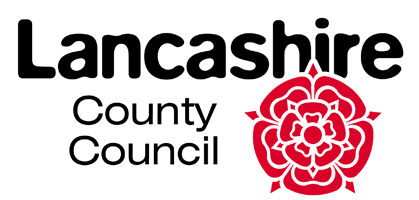
Find out about the technology helping thousands of people across Lancashire live independently
Six hours into her shift and an operator at a call centre in Leyland has already answered more than 150 calls.
She works for Progress Lifeline who deliver Lancashire County Council's technology enabled care service, helping more than 8,000 people live independently and get help in an emergency.
Devices such as sensors and alarms are installed in people's homes and connected to a 24/7 response centre.
If an alarm is activated, operators can speak to the household. Sometimes they may need to alert the emergency services, but often they just need to provide advice or contact a family member. If someone has fallen, but isn't injured, they can also send a responder to help.
On average, a responder arrives at someone's home within 25 to 30 minutes and uses specialist equipment to lift them off the floor and check they're ok.
Steve has been an emergency responder for five years and said:
"Each day varies enormously. I can have days where I don’t go out at all, although they’re quite rare, and on others I go out at the start of my shift and I don't get home until the end of it.
"We often find that people won’t call for help straight away, they'll spend some time trying to get up before they accept defeat and then call us.
"It's really rewarding, especially seeing the look on people's faces and the gratitude once we get them up and they're sitting comfortably after spending time on the floor."
But technology enabled care isn't just for those at risk of falling.
Sensors can detect if someone has had a seizure or if someone with dementia has opened their front door.
Andrew and John
John lives in Lancashire and has several chronic illnesses and poor mobility. He lives with his partner and full-time carer Andrew.
They have a Lifeline alarm in their home and John also wears a pendant, which means they both have peace of mind knowing help is just a button press away.
Andrew said:
"When I go shopping, I know he has his Lifeline connection and that you are connected to me as emergency contact, so it’s empowerment for us both, I truly appreciate your assistance.
"John is not alone, but connected to your friendly professional team. They are truly consistent with their care and make such a difference to people’s lives."
Anybody can apply for technology enabled care; you don't need a social care assessment, you can simply apply online: Apply for TEC - Lancashire County Council
Lauren is one of those who visits and calls people to check how they are and how they're feeling.
She said:
"Sometimes it's just to check they're ok, if they need anything, so I'll see if they're ok with their food shopping, if they have carers, things like that. It's just a chat for some of them who don’t have anyone else to speak to.
"With the visits you can also see how they're living, how they are day to day, how their mobility is or any medical condition. You get to build a rapport with service users and see if they need any extra help.
"Some people don’t have contacts that live nearby, so the only form of communication that they'll have is with us. It's nice for them to talk about things they've watched on tv or if they need to speak to someone about an issue then they know they can have a chat with us."
County Councillor Graham Gooch, cabinet member for adult social care, said:
"Technology enabled care is a shining example of what we're promoting through Living Better Lives in Lancashire to support people to live independently.
"It's incredible to see what a huge difference such small devices like alarms and sensors can make to someone's life and mean they can stay in their own homes.
"Knowing that you can get help at the press of a button is so reassuring for people with long term health conditions or mobility problems as well as their family and friends."

